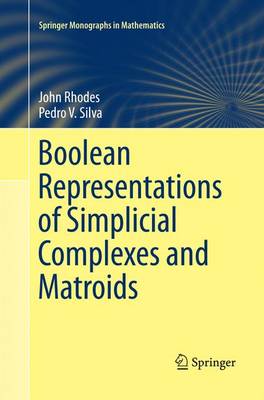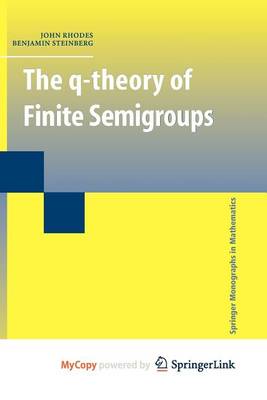Springer Monographs in Mathematics
2 total works
Boolean Representations of Simplicial Complexes and Matroids
by John Rhodes and Pedro V. Silva
This self-contained monograph explores a new theory centered around boolean representations of simplicial complexes leading to a new class of complexes featuring matroids as central to the theory. The book illustrates these new tools to study the classical theory of matroids as well as their important geometric connections. Moreover, many geometric and topological features of the theory of matroids find their counterparts in this extended context.
Graduate students and researchers working in the areas of combinatorics, geometry, topology, algebra and lattice theory will find this monograph appealing due to the wide range of new problems raised by the theory. Combinatorialists will find this extension of the theory of matroids useful as it opens new lines of research within and beyond matroids. The geometric features and geometric/topological applications will appeal to geometers. Topologists who desire to perform algebraic topology computations will appreciate the algorithmic potential of boolean representable complexes.
This comprehensive, encyclopedic text in four parts aims to give the reader - from the graduate student to the researcher/practitioner - a detailed understanding of modern finite semigroup theory, focusing in particular on advanced topics on the cutting edge of research. The q-theory of Finite Semigroups presents important techniques and results, many for the first time in book form, thereby updating and modernizing the semigroup theory literature.

